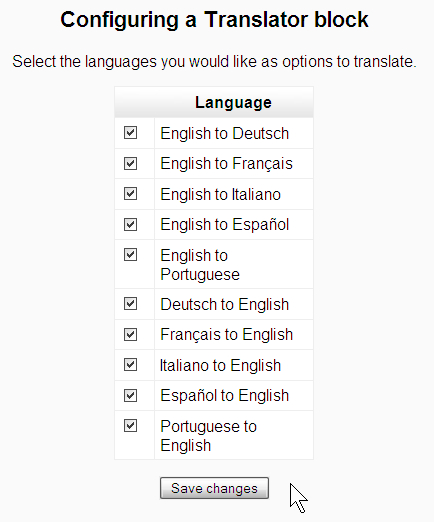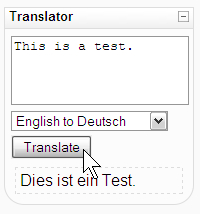|
Name |
Translate Block |
|
Module type |
Block |
|
Author |
Paul Holden |
|
Released |
2007 |
|
Maintained |
Actively |
|
Languages |
English, German |
|
Compliance |
Good |
|
Documentation |
Online documentation and |
|
Errors |
None |
If you are teaching a language course, or perhaps courses where students need to use more than one language, then having translation tools at hand may be useful for you and your students. The Translate Block is a quick and convenient way to translate text.
Unzip and copy the Translate Block directory into the /moodle/blocks/ directory and visit the Notifications page.
As this block includes a textbox, and textboxes may be disabled within blocks while editing is turned on, you may need to Turn editing off before you can test it.
Once added to your site, the Translate Block allows you to configure which languages the user can select for translations. It may be desirable to limit languages to those relevant to a course. To do this, access the block's configuration by turning editing on and clicking on the configuration icon on the block.

The Translate Block is quick and convenient. The block uses Ajax to collect the translation and display it in the lower part of the block. For simple phrase translations, this is a very effective tool.

Note
The block is prone to a potential hazard in the form of possible changes to the Google Translate API. During initial testing, this block did not work as the Google API had changed and the downloaded block code had not yet been updated to cater for this change. It was possible to modify the code and feed this change back to the author, and by the time you read this and download the block it should be working. However it may be necessary for the block to be adapted to changes in the Google API in future, and you won't know when the block will need updating until it stops working.
Armed with the Translate Block, you might be looking for uses. Here are some ideas:
